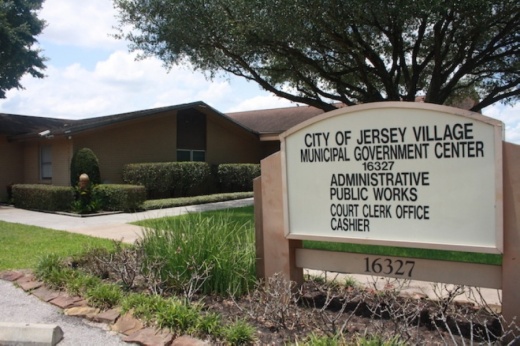Members of the Jersey Village City Council discussed options for how sales tax revenue could be redirected at a Nov. 16 meeting, at which the majority of council showed an early preference for funding fire prevention and emergency medical services. No action was taken at the meeting, and any reallocation of sales tax revenue would require voter approval.
Currently, money pulled into the city of Jersey Village through its 2% local sales tax is split into three pots: Half of it goes to the general fund, one quarter goes to a crime control and prevention district, and one quarter goes to a property tax relief fund.
Under state law, when a city opts to use sales tax revenue toward property tax relief, a portion of sales tax revenue is removed from the general fund and used to reduce how much property tax revenue the city takes into account when calculating its tax rate each year, according to the Texas State Comptroller's Office. In 2019, the city used about $1.9 million in sales tax revenue to reduce the property tax total, according to budget documents.
Recent changes that went into effect in 2019 as a part of Senate Bill 2—a property tax reform bill—mean that it is the city's interest to reconsider the use of sales tax revenue to reduce property taxes, City Manager Austin Bleess said.
Bleess presented council members with five different funds into which the city is allowed to direct portions of sales tax revenue: the general fund, an economic development fund, a fire control and prevention fund, a street maintenance fund, and the crime control and prevention district, which the city already has but which officials could choose to boost or scale back funding levels.
Sales tax revenue can be reallocated in increments of an eighth of a percentage point, which would be about $491,000 based on the city's 2019 revenue numbers.
In expressing his support for putting money toward fire prevention, Council Member James Singleton pointed out that the city recently had a grant application denied that would have helped pay for full-time firefighters.
Council Member Bobby Warren said he would not be opposed to shifting the entire 0.5% from property tax relief into a fire prevention fund.
"We are going to need to increase the paid professional presence in our fire department, and this would be a way of ensuring we had the revenue dedicated for that purpose for the foreseeable future," Warren said.
Singleton said he was wary in general about committing funds toward a specific use in a way that could tie the city's hands in the future, which he said made the street maintenance fund less appealing to him.
Several other council members said they saw value in putting sales tax dollars toward economic development but would rather keep that money in the general fund and dole it out for individual economic development projects when it makes sense.
Council members also balked at the idea of reducing the amount of sales tax that goes into the crime control district; they agreed that the money has been well-spent up to this point.
However, Mayor Andrew Mitcham said he would like to see the fire department and police department start to analyze long-term spending plans to determine future needs and whether a sales tax allocation of 0.5% could be too much down the line. Sales tax revenue has increased by about 50% since 2015, he said, a trend council members are working to push even further through economic development—including with the Village Center, a new mixed-use project planned for south of Hwy. 290.
"It would be wise, since we’ve seen this exponential sales tax growth, that we look at maybe bringing something forward to the citizens where we could explain ... why we would want to allocate this percentage to these funds," Mitcham said.
Effects on property taxes
Mitcham said reallocating sales tax revenue away from property tax relief would not result in an increase to the city's tax rate or resident property tax bills. Council voted to increase homestead exemptions in 2019 and lowered the property tax rate for fiscal year 2020-21; Mitcham said he expects both trends to continue."Last month, there was a verbal commitment to [increasing the homestead exemption] next year, once [the] pandemic has died down," Mitcham said. "Everything down the road points to everyone's property tax bills going down as long as we have council members committed to that."
Sales tax revenues used for property tax relief are subtracted from the city’s no-new-revenue tax rate and voter-approval property tax rate calculations, both of which were established by SB 2, Finance Director Isabel Kato told council. Under SB 2, a taxing entity cannot increase the amount of property tax revenue raised from existing property by more than 3.5% from one year to the next without first getting voter approval.
The no-new-revenue rate is the tax rate determined each year that would keep property tax revenue the same for the city, while the voter-approval rate is the highest tax rate a city can set, based on the 3.5% cap, before voter approval is needed. Reallocating the sales tax revenue currently put toward property tax relief would cause the city's no-new-revenue rate to be higher, Kato said, which would provide more flexibility.
To conclude the Nov. 16 discussion, council directed Bleess to come back with a proposal for a ballot item with which council can move forward for a future election.





